- Home
- Grant Blackwood
Sacrificial Lion
Sacrificial Lion Read online
Experience a heart-pumping and thrilling tale of suspense!
Originally published in THRILLER (2006),
edited by #1 New York Times bestselling author James Patterson.
In this intense Thriller Short, #1 New York Times bestselling writer Grant Blackwood introduces British spymaster Henry Caulder, who faces some overwhelming odds.
In 1953, Caulder finds himself in a Russian prison with his health slowly deteriorating. He was sent to Germany on a mission for the CIA but was under watch by the authorities almost from the second he arrived. When captured, he was sent to Lubyanka prison and tortured for information he refuses to give up. Why? Because he knows an execution is in his future, whether he talks or not. And the fate of Europe, and perhaps the world, hangs in the balance.
Don’t miss any of these exciting Thriller Shorts:
James Penney’s New Identity by Lee Child
Operation Northwoods by James Grippando
Epitaph by J. A. Konrath
The Face in the Window by Heather Graham
Kowalski’s in Love by James Rollins
The Hunt for Dmitri by Gayle Lynds
Disfigured by Michael Palmer and Daniel Palmer
The Abelard Sanction by David Morrell
Falling by Chris Mooney
Success of a Mission by Dennis Lynds
The Portal by John Lescroart and M. J. Rose
The Double Dealer by David Liss
Dirty Weather by Gregg Hurwitz
Spirit Walker by David Dun
At the Drop of a Hat by Denise Hamilton
The Other Side of the Mirror by Eric Van Lustbader
Man Catch by Christopher Rice
Goodnight, Sweet Mother by Alex Kava
Sacrificial Lion by Grant Blackwood
Interlude at Duane’s by F. Paul Wilson
The Powder Monkey by Ted Bell
Surviving Toronto by M. Diane Vogt
Assassins by Christopher Reich
The Athens Solution by Brad Thor
Diplomatic Constraints by Raelynn Hillhouse
Kill Zone by Robert Liparulo
The Devils’ Due by Steve Berry
The Tuesday Club by Katherine Neville
Gone Fishing by Douglas Preston and Lincoln Child
Sacrificial Lion
Grant Blackwood
CONTENTS
Sacrificial Lion
GRANT BLACKWOOD
In his debut novel, The End of Enemies, Grant Blackwood introduced his hero Briggs Tanner, who, after witnessing the murder of a stranger, finds himself embroiled in a plot that takes him from Japan, to a remote island in the Pacific, and finally to the bullet-ridden back alleys of Beirut. In The Wall of Night, as the world marches toward a catastrophic war, Tanner returns to China to solve a mystery that has haunted him for twelve years. In An Echo of War, Tanner’s search for a missing family member turns into a race to secure a biological weapon born in a secret bunker during the dying days of the First World War.
Here, in Sacrificial Lion, Blackwood introduces Henry Caulder, a British spymaster who slips into cold war East Berlin on an impossible mission. In the balance hangs the fate of Europe, and perhaps the world. But Sacrificial Lion is not just a tale of espionage, it’s also a legacy of sorts, for Henry Caulder is the grandfather of Blackwood’s newest hero, Sam Caulder, who, fifty-five years after Henry’s fateful mission, will find himself entangled in a manhunt that pits him against rogue spies, mafia kingpins, Washington’s power elite and a billionaire intent on controlling America’s future. Blackwood plans several Sam Caulder adventures.
For both Caulders, past and present, the fate of the world hangs in the balance.
But each man is up to the task.
SACRIFICIAL LION
Moscow, January 1953
Henry Caulder knew by the sound of their footsteps they were coming to kill him.
Whether the spectacle was designed to instill fear or to uphold the image of Stalin’s inescapable grasp, he didn’t know, but every inmate in Lubyanka Prison recognized the ponderous march of the guard’s boots in the corridor. It was a terrifying sound and an impressive sight, but Henry had been preparing for this day, and now all he felt was a sense of completion.
At least three men—perhaps many more—had gone before him, each receiving a single bullet in the head from a Makarov pistol. As most prisoners do, each man would have screamed his innocence to the end, until that last moment when he felt the cold steel circle of the muzzle come to rest on his skin.
The boots stopped outside his door. Henry took a last look around. His cell was a bleak cliché: no windows, a straw mattress and a brimming waste bucket in the corner. The walls were painted a mottled gray and pus yellow. His only illumination came from what little light seeped around the edges of the door. He hadn’t seen sunlight in forty days. To his surprise, that’s what he missed the most. More than the torture, more than the starvation, more than the cold, he missed being outdoors.
His body was failing him. Since they’d started on him, he’d lost so much weight his ribs and collarbone poked from his skin. His nose and right hand were broken and his testicles…well, he hadn’t been able to bring himself to look at them. The soles of his feet were bruised and swollen, his toes turning black. Going to lose the nails on all of them, he thought, chuckling. Never be able to wear sandals again.
He’d also developed a deep, racking cough. Pneumonia, perhaps. Perhaps something else.
The latch was thrown back. He let his shoulders slump and his face go slack. The door swung open. Standing there in full-dress uniforms were the two guards he’d dubbed Boris One and Boris Two. “You will come now,” Boris One said.
Henry hobbled forward and fell in between them. He’d long suspected he was the only occupant of this block and now he saw he was right. Each door stood yawning, dark inside. Bare bulbs hung from the ceiling and trailed down the corridor to a gate. When they reached it, Boris One called out in Russian, “Open. Prisoner one-zero-nine-two.”
The gate rattled back. They walked through and turned left. Henry felt his hands begin to shake. He clenched them. You’re okay…you’ve done some good. They reached a stairwell and started down. With each step, the light from above faded until, at the bottom, he found himself in darkness. Ahead was a lighted doorway. He stopped, his feet frozen. Behind him, Boris Two placed an almost gentle, coaxing hand on the small of his back. It was the first kind touch he’d felt in forty days. He felt tears well in his eyes. Come on, Henry.
He shuffled forward. At the door Boris One stepped aside, heels clicking together as he snapped to attention. Henry gulped a lungful of air and stepped up to the threshold. Two months, he thought. God, was that all? He’d come a long way since this had begun….
* * *
Knowing the Brahmins at MI6 wouldn’t sign off on his plan, Henry took the first available plane out of London for Washington, D.C., where he took a taxi to the E Street offices of the recently christened CIA. He still thought of it as the OSS and probably always would. He had friends there, many of whom he’d jumped with behind enemy lines during the war as part of the Jedburgh commandos.
At the security shack he asked for Lucille Russo. The guard made the call, gave him a badge and directed him to Lucille’s Quonset hut. She was waiting for him. “Henry, as I live and breathe! I thought you hated planes.”
“I do—still do.” Planes, parachutes and gunfire were affiliated memories. “I’ve got something in the works, Lucille. I need your help. Perhaps I could have a private word with you and Joe?”
* * *
Joe Pults was another Jedburgh friend, now in the CIA’s Office of Special Operations. They found him reclined in his chair, feet propped on the desk. Seeing
Henry, he bolted up and strode over. “Henry? Henry Caulder? God, it’s good to see you!”
“And you, Joe.”
Lucille said, “Henry’s got an op he wants to talk about, Joe.”
Pults shut his door and gestured for them to sit. “Shoot.”
It took but five minutes for Henry to make his pitch. “It’s dicey, but if we pulled it off—”
“Jesus, Henry, I don’t know what to say. What’s your time line?”
“It should happen within the next couple of months—plenty of time if we move quickly.”
“And your people?”
“I’m on a leave of absence.”
Pults thought for a moment, then nodded. “Dulles is traveling. Let’s talk to Beetle.”
* * *
Walter Bedell “Beetle” Smith, former chief of staff to Eisenhower at SHAEF, had been appointed CIA director by Truman. Smith was a soldier at heart and Henry hoped that attitude would work in his favor. Smith listened to his plan, then said, “God, man, do you have a death wish?”
Standing against the wall, Lucille and Joe shuffled nervously. Henry simply smiled.
“Apologies,” Smith said. “Okay, how many contacts?”
“Three.” Henry gave him the names. “I doubt I’ll have time to reach any more than that.”
“You’d have to lay the groundwork just right.”
“Yes.”
“I know you speak German. How about Russian?”
“Ya ischu devushku, kotoraya khochet lyubit i bit lyubimoy.” I am looking for a girl who wants to love and be loved.
“Aren’t we all,” Smith replied. “You’d go naked?”
“Naked” meant without diplomatic cover. If captured, he’d be executed. “It’s the only way,” Henry said.
“Timeline?”
“Two weeks of prep here and three days on the ground.”
“Tight schedule.”
“I doubt they’ll leave me alone any longer than that.”
“Probably right.” Smith gazed out the window for a moment. “You’re sure about this?”
“General, we know they’re coming sooner or later,” Henry replied. “This is a golden opportunity.”
“You have family?”
“My wife and I divorced in forty-two. My son, Owen, is twelve. His stepfather’s a decent sort.” And I wasn’t, Henry thought. Not much of a husband and not much of a father. Since ’39 he’d been gone more than home.
“Still,” Smith said, “they—”
“They won’t miss me, General. Let me do this. Please. It could make a difference.”
“I’ll have to run it by Ike.” Eisenhower, who had been elected a week earlier, was in transition, preparing for his January inauguration. “In the meantime, Joe, you and Lucille get to work. Anything Henry needs, give it to him.”
* * *
Ten days later Henry’s cover, backstop documents, communication protocols and route were in place. The cornerstone of the plan, an executive secretary at the GSFG, or Group of Soviet Forces Germany, headquartered in Zossen-Wünsdorf, was being prepped by her CIA handler.
Two weeks after arriving in Washington, Henry landed at Tempelhof Airport and took a taxi to the CIA station on Baerwald Strasse, where he spent an hour with the chief of station. By dusk he was pulling up to the East German checkpoint at Chausseestrasse in the French-controlled sector.
He coasted to a stop before the barrier. On either side concertina razor wire stretched into the twilight, winking in the arc lights. A guard appeared beside the window and asked for his papers while two more circled his car.
“You are French?” the guard said in stilted English, the default language used at checkpoints.
“Oui—yes.”
“Your purpose here?”
“It’s in the letter. I’m a consultant with COMECON,” Henry replied, referring to the Council for Mutual Economic Assistance. This alone would pique the immediate attention of the Stasi—the East German secret police—and the MgB—the current version of the Soviet’s Ministry of State Security—but it couldn’t be helped.
The guard handed his papers back. “Proceed.”
The barrier swung upward and Henry drove into the Soviet Occupation Zone.
* * *
Having worked in Berlin since the end of the war, he knew its nooks and crannies. Even in the dark, the bleakness of the Soviet sector was palpable: buildings gray, streets gray, streetlights muted in the cold drizzle. It was as if the occupation had leached all the color from the landscape. In every vacant lot stood mountains of rubble from the bombing raids seven years earlier, and most structures still showed signs of war: bullet holes, gaping wounds from artillery, facades crumbling onto sidewalks. Here and there people walked in threadbare coats, heads down as they hurried home or nowhere. How many? he wondered. At last estimate, the Stasi had 50,000 agents and 125,000 informants throughout East Germany. One in six people on the street were Stasi.
The question was, could he do the job before they moved on him?
* * *
Henry had no trouble finding the safe house, an apartment off Wilhelm Pieck Strasse. He parked down the block and circled on foot to ensure he hadn’t picked up any watchers, then climbed the alley stairs to the door and knocked. A female voice said, “Ja?” The language was German, the accent Russian. “Herr Thomas?”
Any name other than “Thomas” would have been the wave-off: run and don’t come back.
Henry gave the correct response and the door swung open.
The agent known as ADEX was tall, blond and full figured. Henry had no idea what had motivated her to turn—likely one of the MICE: money, ideology, compromise or coercion—and he didn’t care. Lucille and Joe had vouched for the handler, and the handler had vouched for ADEX. For the last four years she’d served in Logistics and Travel at GSFG.
“Welcome,” she said. “My name is—”
“I don’t want to know your name.”
“Oh. Yes, of course. Come in.”
Henry was in a hurry, but she wanted to chat. Most of them did. Isolation and fear were common among agents, especially here. After twenty minutes, she gave him the dossier. He asked her to make some tea, then scanned the file and put the details to memory. He walked to the woodstove and tossed the file inside.
“How did you come across this information?” he asked.
“Gossip, expense reports, that sort of thing. They come for meetings several times a week. What can I say? They like to talk.” She smiled coyly and sipped her tea.
And more, perhaps, Henry thought. Sexpionage at its best. “And the other thing?”
Using her index and middle fingers, she mimed scissors. “Snip, snip. Done. Took it from his belt.”
They chatted for a few more minutes, then Henry slid a folded newspaper across the table. Inside was an envelope. “Papers. You’re leaving tonight. You’ll be met on—”
“What? Tonight? Why?”
“If you stay, you’ll be arrested. From here you’ll walk to the eastern end of Prenzlauer Allee and stop. You’ll hold the newspaper in your left hand. You’ll be met.” In fact, ADEX would be watched from the moment she stepped outside. If she deviated, she’d be snatched off the street. “Repeat that,” he said.
“Prenzlauer Allee, eastern end, newspaper in my left hand.”
“Good. Better get going.”
She left. Henry finished his tea, then stretched out on the trundle bed and slept.
* * *
He awoke at two, left the apartment and started driving south. On the outskirts of the city he made his first mistake, speeding through a stop sign within sight of a Volkspolizei car. He pulled to the curb and waited as the VoPo officer checked his papers, asked his destination and gave him a lecture before sending him on his way.
He spent the remainder of the night touring the German countryside, heading south and east, killing time. Two hours before dawn he reached Magdeburg and spent an hour servicing the dead drops. There was no
thing to pick up, only drop off. Next he followed his map to Kleingarten, a park along the banks of Lake Neustadter. He parked, then ducked into a bus hut overlooking the path and waited.
* * *
His contact was on schedule. Colonel General Vasily Sergeyevich Belikov, hero of the Great Patriotic War and Commander of the Third Shock Combined Arms Red Banner Army, was a man of habit. Every morning without fail he walked his borzoi around Lake Neustadter.
Henry waited until Belikov was three hundred yards away then flipped up his collar and stepped onto the path. Hoarfrost coated the grass, and his footsteps kicked up billows of ice crystals that glittered in the sun.
Belikov was accompanied by four guards, paratroopers from the Ninth Corp, two preceding him and two trailing. Henry let his shoulders droop and adopted a shuffling gait—another tired and overworked German. As he drew even with the leading guards, they frisked him, checked his papers, then sent him along. He could feel their eyes on him, guns at the ready should he take a step toward their charge.
As he passed Belikov he let the blue button slip from his fingers. He bent to pick it up and called out, “Entschuldigung Sie, bitte.” Excuse me, please.
The general turned around. “Prastite?” in Russian, then in German: “Was?” What?
“You dropped this,” Henry said, button extended.
Behind him Belikov’s guards were trotting forward, machine guns coming up. Belikov raised a hand, halting them, then said to Henry, “Pardon?”
“There, from your coat belt. It must have fallen off.”
Belikov glanced down at the coat. “Oh…yes.” He took the button from Henry’s hand. “Thank you.” He turned and walked on.
* * *
He was back in Berlin by late morning. As he crossed the Warshauer Bridge over the Spree, he caught the first whiff of Stasi watchers: two cars, one leading him and a second trailing a hundred yards back. In his rearview mirror he saw the passenger raise a microphone to his mouth.
No question now. They were onto him and probably had been since Magdeburg. As he was still an unknown to them, the leash was loose, but that wouldn’t last long.

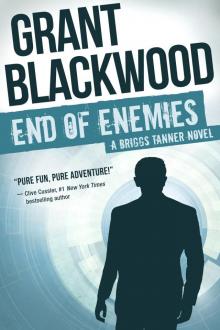 End of Enemies
End of Enemies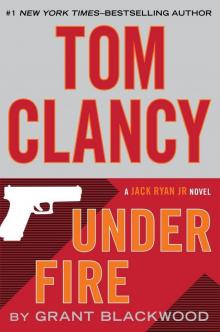 Tom Clancy Under Fire (Jack Ryan Jr. Novel, A)
Tom Clancy Under Fire (Jack Ryan Jr. Novel, A) Dead or Alive
Dead or Alive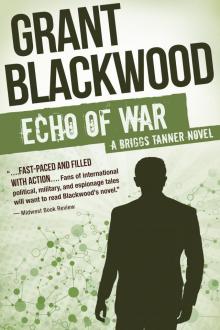 Echo of War
Echo of War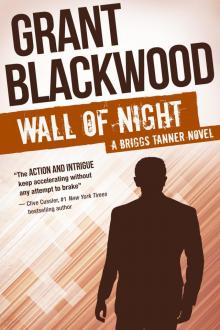 Wall of Night
Wall of Night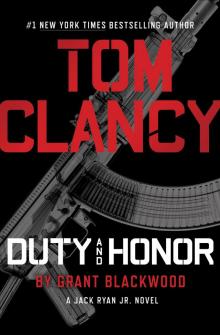 Tom Clancy Duty and Honor (A Jack Ryan Jr. Novel)
Tom Clancy Duty and Honor (A Jack Ryan Jr. Novel)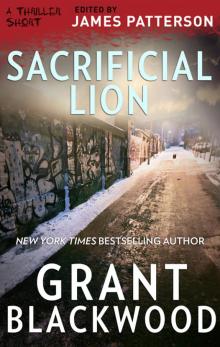 Sacrificial Lion
Sacrificial Lion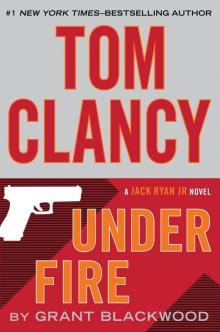 Tom Clancy Under Fire
Tom Clancy Under Fire